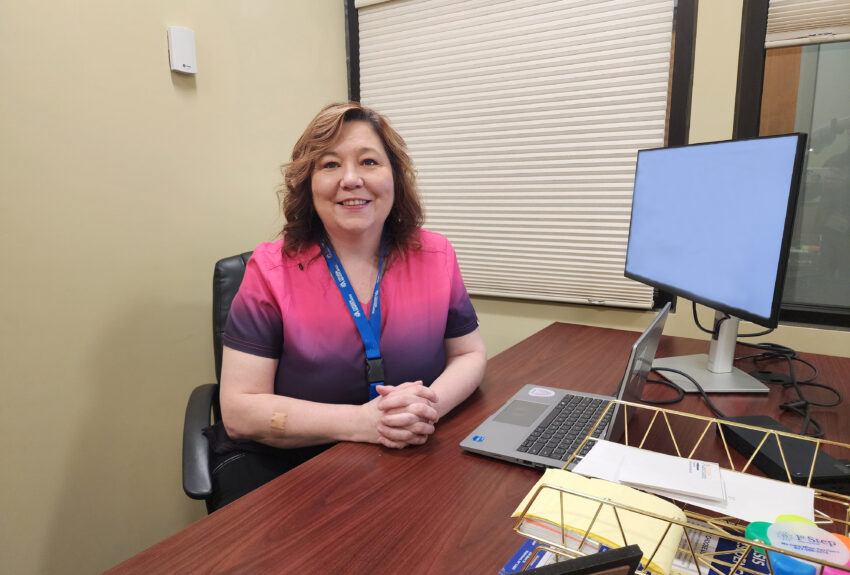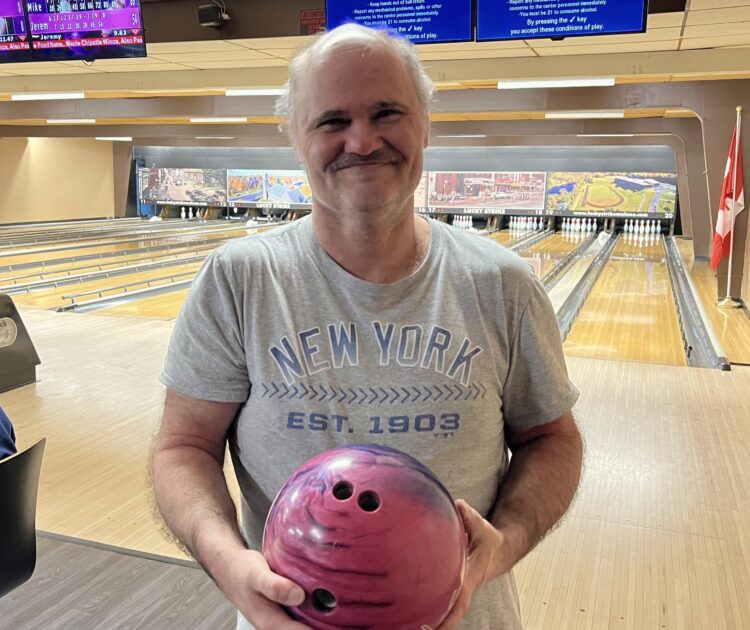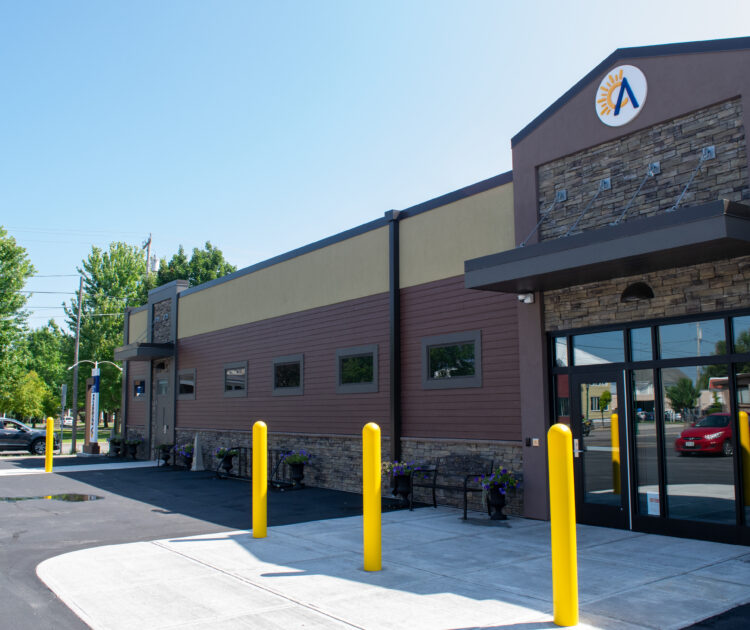Welcome to One Team, where we highlight standout members of Citizen Advocates’ 800-strong team.
Christina Harris grew up in a military family and moved to Watertown at age 20 where her mother and stepfather worked at Fort Drum. She then spent almost two decades in the corporate world before deciding to become a nurse. “Sometimes, you’re called to do something,” she said. “As we get older, we want to make a difference in the world.” As a Licensed Practical Nurse at Citizen Advocates’ Watertown Behavioral Health Urgent Care Center (BHUC), she gets to do just that every day. Below is her story in her own words.
How did you become a nurse?
Harris: I worked 19 years for CAR-FRESHNER air fresheners here in Watertown, a great company. Then in 2008-2009, I lost my grandparents six months apart and spent time with them in hospice. I was so affected by what the nurses did and the impact they had. I thought this is a job that makes a difference in people’s lives. I want to do this.
So, I started taking night classes after work, but the process was going to take a long time and I wasn’t getting any younger. I quit my job, cashed out my retirement and became a Certified Nursing Assistant. Then I went to nursing school full time while working as a CNA overnights.
I became an LPN and worked in a few different types of nursing. Then in 2018, I was offered a job to work at Credo Community Center. I didn’t know anything about addiction, didn’t have any family history with it, no background at all. But I saw that I could make a difference.
That experience was incredibly eye-opening. I saw people at the clinic every day and got to know them, learned their stories. That completely changed my opinion of addiction. I learned that our patients were patients. They weren’t addicts. They were suffering from the disease of substance use.
How did you first hear about Citizen Advocates?
Harris: I heard about the 24/7 Behavioral Health Urgent Care opening on State Street and knew that I wanted to be part of it. Twenty-four-hour service was so desperately needed in this community. Other agencies do great work, but they close at night. We always had the issue: Where do patients go when they’re struggling after hours? Knowing the population that we serve I knew what a great thing this was going to be for the community.
I started just before the Watertown BHUC opened and was here on day one. Taking this job was the best decision that I ever made. I get to make that difference I was hoping to make.
How does the team at the Watertown Behavioral Health Urgent Care work together?
Harris: We do amazing work here and it takes the entire team to do it. Nobody says, “it’s not my job.” Nobody says, “I’m too busy.” If a therapist has a client with a medical concern, they’ll send us a message asking if we can look at something. If it’s a Medication-Assisted Treatment question, they’ll have me come and talk to the client or make an appointment. We’re always in contact.
We do health monitoring appointments for each client every 90 days. We rundown medical history, talk about alcohol, nicotine and illicit drug use, exercise and physical health. We ask questions about stable housing and food at home. If they need help with housing, we have other services that we can offer. If they need help with food, we have contacts for the food pantries in the area. If they don’t have a primary care provider, we help them find one.
We find a way to treat the whole person. Everyone does their part.
What need do you see for Behavioral Health Urgent Care in Watertown?
Harris: The need in this area is tremendous and it’s only gotten worse in my six years working in behavioral health nursing. We have a huge homeless population in Jefferson County. Case-by-case, homelessness almost always equates with a mental health or addiction issue. People don’t become homeless for no reason. The high cost of housing in the area has only exacerbated the problem.
There are many local agencies who do wonderful work, but they often have long waitlists. I’ve seen a waitlist of more than 200 people long to even get into see someone. That’s where the BHUC comes in.
Are there any impactful stories from your time at the Behavioral Health Urgent Care that you can share?
Harris: So many. There was someone in particular who came in struggling with substance use and was severely impacted physically. We sent them to our Ogdensburg BHUC for withdrawal. From there they went to an inpatient rehab then returned to us for outpatient treatment.
The peer support specialist and I who worked with them on the day they first came in didn’t even recognize them in the lobby. They’re clean and doing great, working with community services to get an apartment.
We’re part of the worst day of a lot of people’s lives. To see someone come back from that is so rewarding. The paycheck is nice, but that’s the stuff that feeds the soul.
How do you maintain a solid work-life balance?
Harris: As a nurse I work three 12 hour shifts a week. I have three adult children and four grandchildren, the youngest of whom was born last March. So, the days that I’m not here I’m with the baby getting snuggles. If I don’t have someone to take care of, I don’t know what to do with myself.
What do you do for fun outside of work?
Harris: I love crafting. Word has gotten out at the BHUC that I know how to sew, so I mend a lot of shirts and pants. It keeps me busy and out of trouble.
If you’re interested in learning more about a career at Citizen Advocates, visit citizenadvocates.net/careers.


 Previous Post
Previous Post


